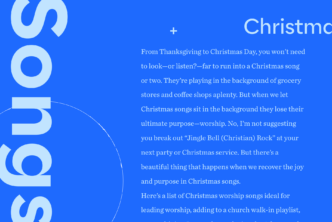What is Ash Wednesday?
Also called Day of Ashes, Ash Wednesday marks the first day of Lent—the 40 weekdays before Easter for Catholic, Orthodox, and some Protestant believers. Many Protestants in less liturgical churches or people outside the faith may not know the meaning of Ash Wednesday. Though not mentioned in the Bible, it has become a day to remember how fleeting life is and focus on the magnitude of Jesus’ death, burial, and resurrection.
It’s a reminder of where we came from and to where we will return:
Then the Lord God formed the man of dust from the ground and breathed into his nostrils the breath of life, and the man became a living creature. (Gen 2:7)
By the sweat of your face you shall eat bread, till you return to the ground, for out of it you were taken; for you are dust, and to dust you shall return. (Gen 3:19)
The name “Ash Wednesday” comes from the placing of ashes on the foreheads of worshipers—symbolizing repentance and mourning1—and it’s a day set aside for self-denial and fasting.

And though Ash Wednesday is not in the Bible, the concept of people connecting dust and ashes with repentance and mourning is. Job repents “in dust and ashes” (42:6), and through the prophet Joel, God calls his wayward people Israel to return to him “with all [their] heart, with fasting, with weeping, and with mourning” (Joel 2:12–13).
And Daniel sought the Lord in prayer, pleading for mercy “with fasting and sackcloth and ashes” (9:3).
Many Christians wonder if they should be observing Ash Wednesday or not. Trevin Wax offers this reminder in his article “Evangelicals Embracing (and Rejecting) Lent”—regardless of where we stand:
I hardly think the church is suffering from too much fasting,” Wax says. “But I do think the church is suffering from too much self-righteousness (and I include myself in this indictment). Lent—being either for or against—can become a way of climbing up on to the pedestal.
What is more important than the practices we take on is the heart attitude behind them. If there’s anything we should give up this time of year, it’s our sense of superiority either to those outside the church or those inside the church who do things differently than we do.”2
So today, whether you celebrate Ash Wednesday or not, recall the meaning of Ash Wednesday and Psalm 51:17—that God will never “reject a broken and repentant heart” (NLT).
***
Want to observe the season of Lent this year? Check out this free Lent reflection guide (with prayers and Bible readings for each day) from Lexham Press.
Related articles
- Palm Sunday, and Why the ‘Date’ Is So Significant
- Is Easter a Pagan Holiday? Some Say Yes—but Is It Really?
- The Empty Tomb of Jesus: See What It Would Have Looked Like
Related resources
- Freedman, David Noel. Eerdmans Dictionary of the Bible, “Ash Wednesday” (Grand Rapids, MI), 2000,
- Wax, Trevin., The Gospel Coalition, “Evangelicals Embracing (and Rejecting) Lent.” https://www.thegospelcoalition.org/blogs/trevin-wax/evangelicals-embracing-and-rejecting-lent/







